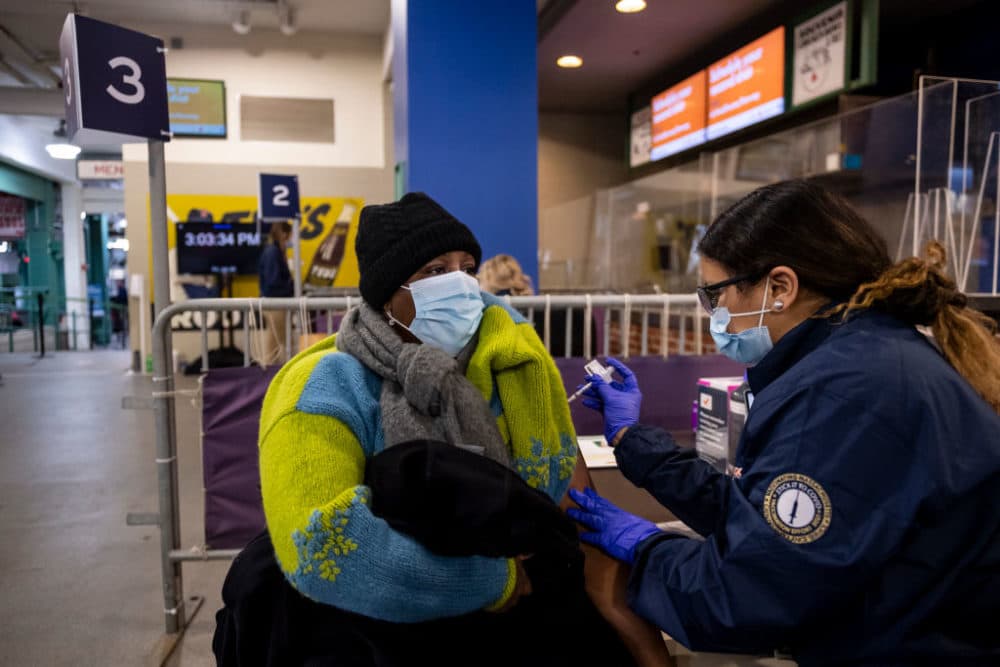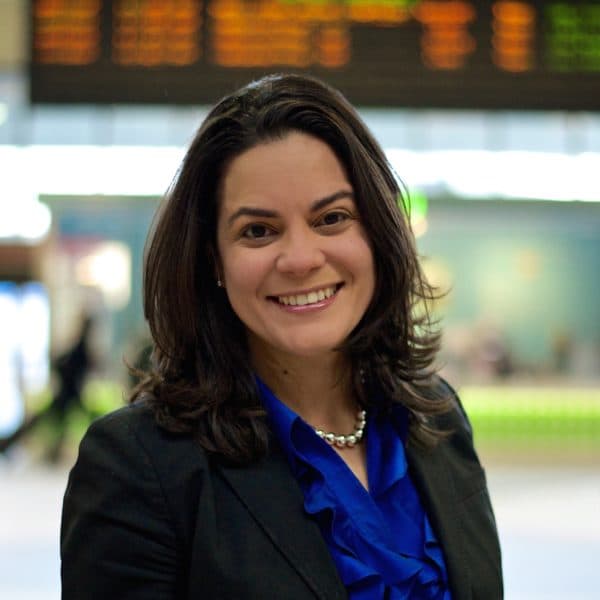Advertisement
To Overcome COVID Vaccine Skepticism In Mass., We Need A Multicultural Approach

Getting COVID-19 vaccine shots into the arms of nearly 6 million adult residents will be one of the greatest public health challenges Massachusetts ever attempts. And it’s a challenge we risk failing, if our health institutions don’t convince skeptical minority communities of the urgency and benefits of being inoculated.
As the former executive director of the Massachusetts Office for Refugees and Immigrants and as a Latina entrepreneur from Puerto Rico, I have worked closely with multicultural communities across the state listening to their unique needs for years. It’s even more critical we listen closely during this crisis.
Thousands of minority families have been shattered by deaths across the state, and many of the diverse businesses that employed them have been shuttered.
However, according to a recent Boston Globe-Suffolk University survey, only 11% of Black residents and 32% of Latinos in the state say they will take the vaccine as soon as it is available to them. This compares to 59% of white residents and 71% of Asians.
Even more troubling: approximately one quarter of our Black and Latino residents say they won’t take the vaccine at all. This stems from longstanding mistrust of government, concerns about vaccine safety and preference for natural remedies, according to a survey by MassINC Polling Group.
These efforts must be culturally competent and fully multilingual to address health disparities and mistrust in government.
Institutions such as hospital networks, community health centers and public health departments must be the tip of the spear in addressing these issues. They must lead with comprehensive outreach and education marketing campaigns that directly address causes for concern around the vaccine.
Michael Curry, of the Massachusetts League of Community Health Centers, recently told the Boston Globe that “trusted voices” in communities of color should be the focus of state public information campaigns.
“We have to make sure that African Americans and others who are disparately impacted by COVID-19 know that folks have been their advocates to make sure there’s medical efficacy and safety assured [in the vaccines],” Curry said.
These efforts must be culturally competent and fully multilingual to address health disparities and mistrust in government. And they must not treat minorities as a monolith, but rather target individual ethnic groups with the most appropriate message and messengers.
Advertisement
In recent years, Latino and Haitian immigrants have expressed legitimate concerns about their immigration status being exposed — and used against them — and vaccination campaigns must address these confidentiality issues. This must be done via multilingual communications, as members of these communities are less likely to speak English at home, and therefore won’t benefit from mainstream media campaigns.
The Black community has different concerns that stem from historic racism and inequities in our health care system that have contributed to major, persistent health disparities. As a result, they are much more skeptical of experimental treatments, medical researchers and doctors, according to Pew Research.
[C]ommunities of color have the most to gain from vaccinations, in terms of health and economic recovery.
Institutions administering vaccines must "walk the walk" and show they are diverse enough to address these challenges, enlisting appropriate health leaders to speak to each ethnic group’s unique issues. They must leverage doctors of color as trusted messengers to give accurate information that helps to change patients’ minds about vaccinations.
Organizations that are administering the vaccine must also employ trusted community health and non-profit messengers for in-person, street and home outreach. This should include organizations such as the Chelsea Collaborative, La Alianza Hispana in Dorchester, and the Cape Verdean Association of Brockton to name a few. And they should partner with ethnic media outlets to provide multilingual public information messages. These messages must be data-informed, showing that communities of color have the most to gain from vaccinations, in terms of health and economic recovery.
Finally, these campaigns must be honest about addressing the mistakes of the past and challenges of the present around racial health equity.
The Massachusetts Health Connector has used such strategies to achieve record health insurance enrollment in recent years. This stemmed from a comprehensive focus on multicultural outreach and education (including the spot below), yielding 57,000 new members during the 2019 and 2020 open enrollment periods. (Full disclosure: the marketing agency I founded and operate has proudly been involved in this campaign.)
As one of our nation’s most diverse states, Massachusetts must continue to lead on equitable health care access. With vaccinations becoming available to the public, time is of the essence and health institutions must launch targeted campaigns before it is too late.
If we can change minds about the vaccine, we can ensure that communities of color will emerge from this crisis stronger and more resilient than before.
